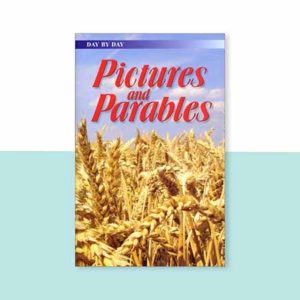Daily Thought
Today’s Daily Thought –
The passage begins with the words of a good man and conclude with those of an evil man and reflect the saying of the Lord Jesus, ‘out of the abundance of the heart the mouth speaketh’ and the way He applied it to good and evil men, Matt. 12. 34, 35.
The meaning behind a man’s words are not always immediately evident upon the surface but, as with ‘deep waters’, v. 4, there can be hidden depths that are only perceived when one knows the motives and object that lie behind them. When those words have their source and origin in the ‘well-spring’, and are drawn from the fountain of divine wisdom, not only will there be a depth to them, but they will be as the waters of a ‘flowing’ or ‘bubbling’ brook, clean, fresh, an unlimited supply, bringing revival, refreshment and sustenance to all who drink of them. Words that will be constant and true, not compromised by outward considerations, cf. v. 5, and words that will not be wilfully contentious, nor open to rebuke, cf. vv. 6, 7. How sad that despite the profit to be gained from this ‘well-spring’, wisdom can be despised and its words not heard, Eccles. 9. 16.
‘The words of a talebearer’, v. 8, stand in direct contrast to words of ‘wisdom’. The Hebrew word ‘laham’, translated ‘wounds’, is used just twice in the Old Testament, cf. 26. 22, and is derived from a verb meaning ‘to swallow greedily’ and thus the first part of the verse can read ‘The words of a talebearer are as dainty morsels’ JND. Understood thus, the verse is indicating the pleasure with which such talk is frequently received, different to the response to words of wisdom.
But what of our words? Do they always come from the ‘wellspring of wisdom’? God gave Solomon wisdom and his words displayed it, both to harlots and to royalty. The Lord Jesus, speaking of one indwelt by the Holy Spirit, said ‘out of his belly shall flow rivers of living water’, John 7. 38. Do our words reflect that? Paul wrote, ‘Let no corrupt communication proceed out of your mouth, but that which is good … that it may minister grace unto the hearers’, Eph. 4. 29.
Yesterday’s Daily Thought –
ORDER YOUR OWN COPY FROM THE BOOK STORE:


